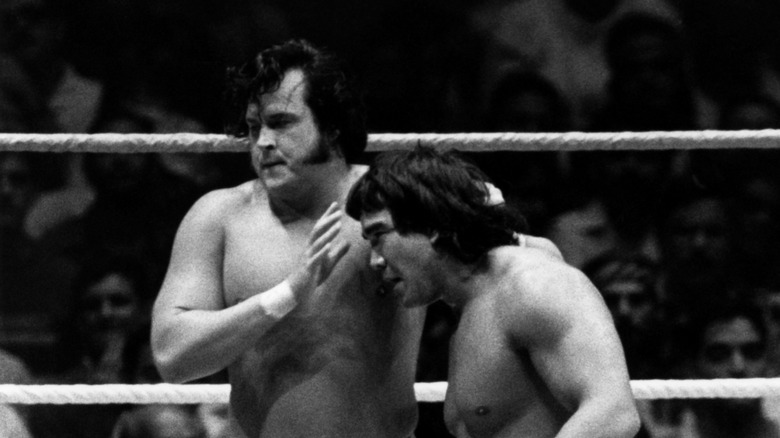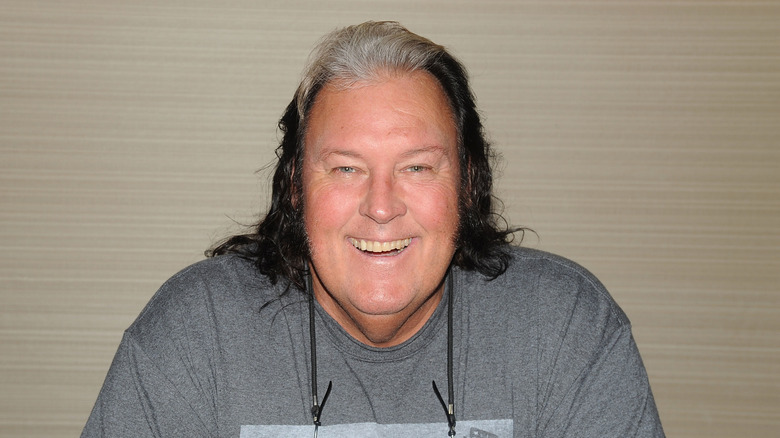This WWE Hall Of Famer Ruined Their Own WCW Career
It may have taken a hiatus in between the days of WCW and AEW, but the art of jumping from one promotion to the other, and then later jumping back to your original promotion, has been going on as long as there's been pro wrestling. And most of the time it's been a very valuable tool for performers; after all, even the best wrestlers can get stale staying in one place too long; a change of scenery can refresh them and give them a jolt. But there are the rare occasions where a wrestler can make the jump, and not only will that refresh not take place, but they wind up worse off than they were previously. And while it would be easy to blame the promotions for that, in at least one case, it was the performer's own doing that things went south.
When WWE Hall of Famer Roy Farris — known in ring as the Honky Tonk Man — made the jump to WCW in 1994, it's a safe assumption that most fans looked at the move and went "Yup, that makes sense." Not only was WCW signing any former WWE talent they could find at the time, they were making a concerted effort to bring aboard anyone who had a friendly relationship with Hulk Hogan. Honky Tonk Man checked off all the boxes: he was one of the more infamous heels during WWE's 1980s golden era, including setting the record for the longest reign as WWE Intercontinental Champion, and he was close friends with Hogan and Hogan's manager, Jimmy Hart, who had managed Honky during the height of his WWE career. Unfortunately, those friendships did little to stop Honky from sabotaging himself once he got to WCW.
Honky Tonk Man's WCW Run Ended Due To Creative Differences
Then again, things were bad in WCW before Farris walked through the door. Then WCW Executive Producer Eric Bischoff was said to have little interest in him, having never been a fan of his work, only bringing him in as a favor to Hogan and Hart. Farris would even go as far to claim that Bischoff told him that during negotiations, though Bischoff has since denied that. Another point of contention was salary, with Honky being frustrated at his $1K per appearance salary, while other wrestlers had guaranteed deals. Still, things were relatively kosher for Honky on screen, as he went undefeated for his first several months in WCW. Things began to fall apart around Halloween Havoc 1994 in Detroit, Michigan, however, when Honky Tonk was booked to lose a WCW TV Title match to champion Johnny B. Badd.
Believing he was too big a star in Detroit to lose, Honky went to Hogan to complain, changing Badd's win to a draw. Undeterred, Bischoff booked a rematch between Honky and Badd for Starrcade in December, with Badd once again booked to win. For a second straight time, Honky refused to lose, citing dissatisfaction with his deal, and not wanting to lose in his hometown of Nashville, Tennessee. Unlike last time, however, Hogan refused to help him, forcing him to go to Bischoff directly. While they differ on the details, both agree that Farris asked for more money, and Bischoff refused; this then led to either Farris walking out on WCW and Bischoff firing him, or Bischoff firing him on the spot. Either way, the Honky Tonk Man's months-long WCW run was over, and it was hard to argue that he wasn't the catalyst for ruining his own career there.

